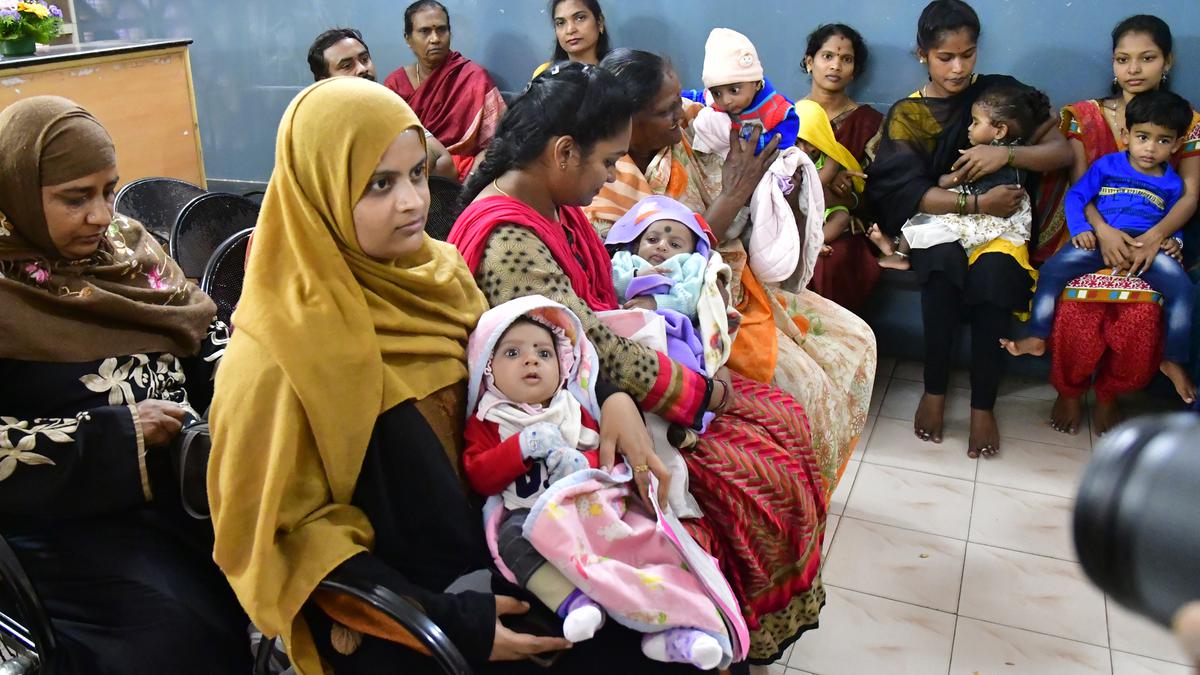
Intensified Mission Indradhanush 5.0 set to begin on September 11
The Hindu
IMI 5.0: 2nd phase of immunisation campaign for partially vaccinated/unvaccinated children & pregnant women (9-16 Sep). Vaccines free of cost at public hospitals/health centres/selected public places. Mobile teams to reach difficult locations. 18,744 pregnant women & 1,16,589 children under 5 partially/unvaccinated. 1st phase success, 3rd phase 9-14 Oct.
The second phase of Intensified Mission Indradhanush (IMI) 5.0, an immunisation campaign targeting partially vaccinated and unvaccinated children up to the age of five years and pregnant women, will be held from September 11 to September 16. Vaccination services will be provided on all days from 9 a.m. till 4 p.m. except on Sundays and public holidays.
All partially vaccinated and unvaccinated children under five and pregnant women should make use of this opportunity to get themselves immunised, the Health department has appealed.
All vaccines under the Universal Immunisation Programme (UIP) will be provided.
IMI 5.0 is being held in three phases across the country and the first one had been a success in the State, an official statement issued by the department said.
The department estimates that there are 18,744 pregnant women and 1,16,589 children under the age of five years who are either partially vaccinated or are un-immunised.
In the first phase held from August 7, the department vaccinated 18,389 pregnant women (98%) and 87,359 children (75%) under five years. The third phase will now be held from October 9-14.
Vaccination will be provided free of cost on all public hospitals, health centres as well as selected public places. The Health department has engaged mobile teams to provide vaccines in difficult to reach locations also.

“Writing, in general, is a very solitary process,” says Yauvanika Chopra, Associate Director at The New India Foundation (NIF), which, earlier this year, announced the 12th edition of its NIF Book Fellowships for research and scholarship about Indian history after Independence. While authors, in general, are built for it, it can still get very lonely, says Chopra, pointing out that the fellowship’s community support is as valuable as the monetary benefits it offers. “There is a solid community of NIF fellows, trustees, language experts, jury members, all of whom are incredibly competent,” she says. “They really help make authors feel supported from manuscript to publication, so you never feel like you’re struggling through isolation.”

Several principals of government and private schools in Delhi on Tuesday said the Directorate of Education (DoE) circular from a day earlier, directing schools to conduct classes in ‘hybrid’ mode, had caused confusion regarding day-to-day operations as they did not know how many students would return to school from Wednesday and how would teachers instruct in two modes — online and in person — at once. The DoE circular on Monday had also stated that the option to “exercise online mode of education, wherever available, shall vest with the students and their guardians”. Several schoolteachers also expressed confusion regarding the DoE order. A government schoolteacher said he was unsure of how to cope with the resumption of physical classes, given that the order directing government offices to ensure that 50% of the employees work from home is still in place. On Monday, the Commission for Air Quality Management in the National Capital Region and Adjoining Areas (CAQM) had, on the orders of the Supreme Court, directed schools in Delhi-NCR to shift classes to the hybrid mode, following which the DoE had issued the circular. The court had urged the Centre’s pollution watchdog to consider restarting physical classes due to many students missing out on the mid-day meals and lacking the necessary means to attend classes online. The CAQM had, on November 20, asked schools in Delhi-NCR to shift to the online mode of teaching.









